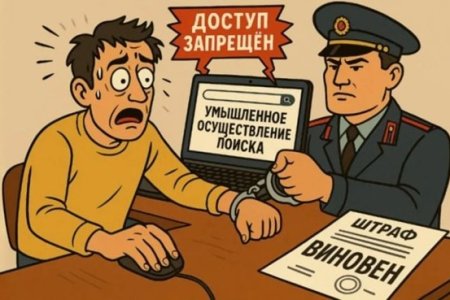
From 1 October 2025, school students in occupied Zaporizhzhia oblast will be prohibited from using any Internet messenger except the Russian state-run MAX.. The latter provides the aggressor state with terrifying scope for control and surveillance. It is one of a series of moves recently aimed at further tightening Russia’s information blockade and preventing people from occupied territory having unmonitorable contact with people in government-controlled Ukraine. There are all indications that MAX contains methods of ensuring surveillance, that are near impossible to bypass, with this aimed at enabling the occupation enforcement bodies to snoop on Ukrainians and hunt down those viewed as ‘too pro-Ukrainian’ or ‘dissident.’.
The ban in Melitopol and other parts of occupied Zaporizhzhia oblast was reported on 18 September by RIA-South, as part of Russia’s “full-scale operation at [achieving] children’s digital isolation on occupied territory”. Russia, it said, is “turning the educational system into an instrument of total control over young residents of the city.” .
There have long been reports of students regularly being stopped and having their phones ‘checked’, with any Ukrainian sites, and especially those organizing distance learning, regarded as ‘incriminating’. By banning voice calls on WhatsApp, Telegram and any other messenger apps which Russia cannot control, and by forcing students to install only the MAX app, total surveillance is near guaranteed. RIA-South quotes one IT specialist as calling the MAX app like a search, just carried out remotely, and points out that others warn “that the installation of MAX is equivalent to voluntarily passing your telephone into the total control of the security service”.
Russia began blocking any media that it could not control and pushing its propaganda instead on occupied territory from 2014. The measures now underway, however, to eliminate methods of bypassing the restrictions and countering the propaganda are on a quite unprecedented scale.
MAX
Russia has tried to present this as ‘a patriotic alternative’, but it seems, very clearly, about total control. From 1 September 2025, MAX must be pre-installed on all computers, tablets, smartphones, and even smart TV, sold in Russia or in occupied parts of Ukraine.
On occupied territory (and, probably, in Russia) you can only resolve any day-to-day issues via MAX. This includes medical services, with even private doctors forced to have any correspondence with patients via the MAX messenger. This spells the end to any degree of medical confidentiality and personal data protection.
RIA-South says that the app has deliberately been programmed using complicated encryption and algorithms so that people cannot know what the app is capable of.
What is known, however, is terrifying enough, with the app described as “a spy in your pocket”. The installed app mean that you can, in real time, follow the person’s movements and behaviour. The program independently turns on its camera every ten or fifteen minutes, probably taking phots without the person’s knowledge.
If the options for geolocating a person whose phone it switched on are not, in principle, new, other activities are a terrifying intrusion. Once MAX is installed, it will be able to scan all other apps, analyse their degree of active use and to gather information about the telephone’ owner’s behaviour. Photos, audio material; the person’s coordinates, activities, etc. can be immediately sent on to Russian servers and, more than likely, Russia’s FSB.
There are times when such surveillance is legitimate – if a person is suspected of a grave crime or of planning an act of terrorism, for example. Here everybody is in danger, with this especially true on occupied territory, where the occupiers are likely to use the app to try to ferret out those with pronounced pro-Ukrainian views.
Blocking of WhatsApp and Telegram
The scope for unwarranted surveillance given by MAX makes it quite clear that the excuses that Russia used in August 2025 for blocking voice calls on WhatsApp and Telegram had nothing to do with ‘fighting crime’. Russia was unable to intercept calls on these messengers, with that the reason that its effective censor Roskomnadzor cut off access to them.
The move is a particular blow to people in occupied Ukraine, and not only because calls on mobile phones or landlines are expensive. Very many people are unable to see their loved ones, living in government-controlled Ukraine, and such calls were also a way of finding out what is really happening. Russia had already blocked Signal and Viber back in December 2024, with that, until August 2025, leaving only WhatsApp and Telegram. MAX was, seemingly, developed by the same people behind VKontakte, a social media platform which has long been notorious for its collaboration with Russia’s FSB. There seem no grounds for hoping that ‘private calls’ through MAX would not be tapped.
Bans on the use of VPNs and on Internet searches
The timing of all these new restrictions is no accident. On 1 September, new legislative measures to control freedom of information came into force. Two new articles have been added to Russia’s code of administrative offences which is illegally applied in occupied Ukraine. Article 13.52 imposes liability for infringing the rules for the use of VPNs in the Russian Federation or on illegally occupied Ukrainian territory. The fines here are potentially steep – from 50 thousand to 200 thousand roubles for an individual; from 80 to 300 thousand in the case of an official; and from 200 thousand to a million in the case of a legal entity.
Article 13.53 imposes liability for what is calling “searches for knowingly extremist material”, as well as for gaining access to these, including through the use of VPNs or other means of accessing resources where access has been restricted. The fines are very small for an individual, however the very fact of such a ban will surely make it much easer to persecute Ukrainians using VPN’s, especially since these are typically used to access banned Ukrainian sites.
Although the ban on Internet searches purportedly refers only to searching for “knowingly extremist material”, even in Russia, this can mean exactly what the particular enforcement agency chooses it to mean, with Russian ‘courts’ unlikely to object.
Here, too, the situation is even more serious in occupied parts of Ukraine, given the aggressor state’s tendency to regard just about everything Ukrainian, barring only folk songs about love and traditional cuisine, as ‘extremist’.



